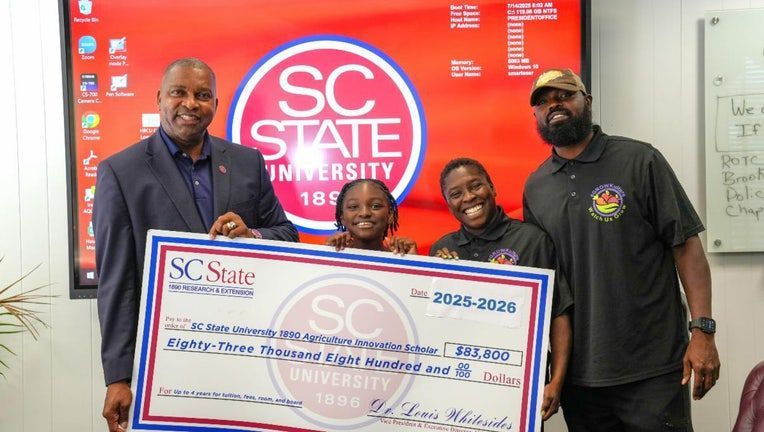Seeds of Change: How a 10-Year-Old Georgia Farmer Is Rewriting the Future of Agriculture

In an era when farming is often overlooked by younger generations, 10-year-old Kendall Rae Johnson of Georgia has made history as the youngest certified farmer in the United States, and secured a full-ride agriculture scholarship to South Carolina State University. Her journey, rooted in family tradition and fueled by parental support, demonstrates the future of youth agriculture. It also mirrors the mission of Communities Over Competition, where agriculture programs and trade encouragement campaigns are helping cultivate the next generation of growers and innovators.
A Farmer Before Middle School
Kendall’s love for farming sprouted at just three years old, with her great-grandmother, growing collard greens on the back porch. What started as curiosity quickly grew into a calling. Today, Kendall runs her own farming venture, aGROWKulture, and has already gained national recognition as a USDA National Urban Agriculture Youth Ambassador.
Her dream? To one day manage a 100-acre farm with crops, cattle, and poultry. While it's a wise vision beyond her years, it's one she's already sowing into.
Why Kendall’s Story Matters
The number of Black farmers in the U.S. has declined dramatically, from nearly a million in 1920 to just 45,000 today. Kendall’s journey is not only inspiring, it’s symbolic. She represents resilience, representation, and revival in agriculture.
Her mother summed it up best, “It’s living with the ceiling open… We have no idea where we’re going, but we’re just following.”
That sense of openness is exactly what youth agriculture movements and organizations like Communities Over Competition seek to nurture.
Communities Over Competition: Cultivating Youth Agriculture
Through its Agriculture & Sustainability initiatives, Communities Over Competition is creating access points for young people to engage with food systems. Programs like BEE Pollinators teach students the science of planting, pollinator importance, and environmental stewardship, all while encouraging creativity and entrepreneurship.
Their model reflects Kendall’s path. That's learning early, practicing skills in real time, and turning passion into opportunity. By blending community gardening, urban agriculture, and education, Communities Over Competition helps ensure that Kendall’s story isn’t an exception, it’s the start of a movement.
The Power of Trade Encouragement Campaigns
Farming is more than planting, it’s about connecting growers with markets. Trade encouragement campaigns, such as youth-run farmers’ markets, community-supported agriculture (CSA) boxes, and school garden partnerships, give young farmers visibility, pride, and pathways to financial sustainability.
Imagine “Young Growers Markets” or BEE Pollinators Trade Fairs, where students showcase their crops, sell produce, and learn supply-and-demand dynamics firsthand. These platforms do more than move products, they build confidence, resilience, and networks for a lifetime.
Planting a Movement
Kendall’s story is proof that youth agriculture isn’t just about tomorrow, it’s here now. With the right support, mentorship, and trade opportunities, young people can lead the way in shaping sustainable food systems.
Mentorship & Storytelling: Highlighting youth like Kendall in Community Over Competition’s Full Clip News ensures their stories reach classrooms, markets, and policymakers.
Hands-On Training: Workshops and co-op farming opportunities can give youth practical pathways to grow food and build businesses.
Trade Platforms: Encouraging trade fairs, pop-up markets, and CSA youth collectives extends the impact from gardens to communities.
At just 10 years old, Kendall Rae Johnson is doing more than farming, she’s redefining what it means to be young, Black, and visionary in agriculture. Her full-ride scholarship and farming venture prove that age is no barrier to impact.
By aligning stories like Kendall’s with the mission of Communities Over Competition, we see the roadmap clearly. Youth agriculture is not a side note, it’s a frontline. With education, trade encouragement, and community support, young farmers are not just keeping traditions alive, they’re planting the seeds for a new, inclusive future of food.
Visit
Community Workshops to explore youth agriculture programs, sustainability initiatives, and ways to support the next generation of growers.



